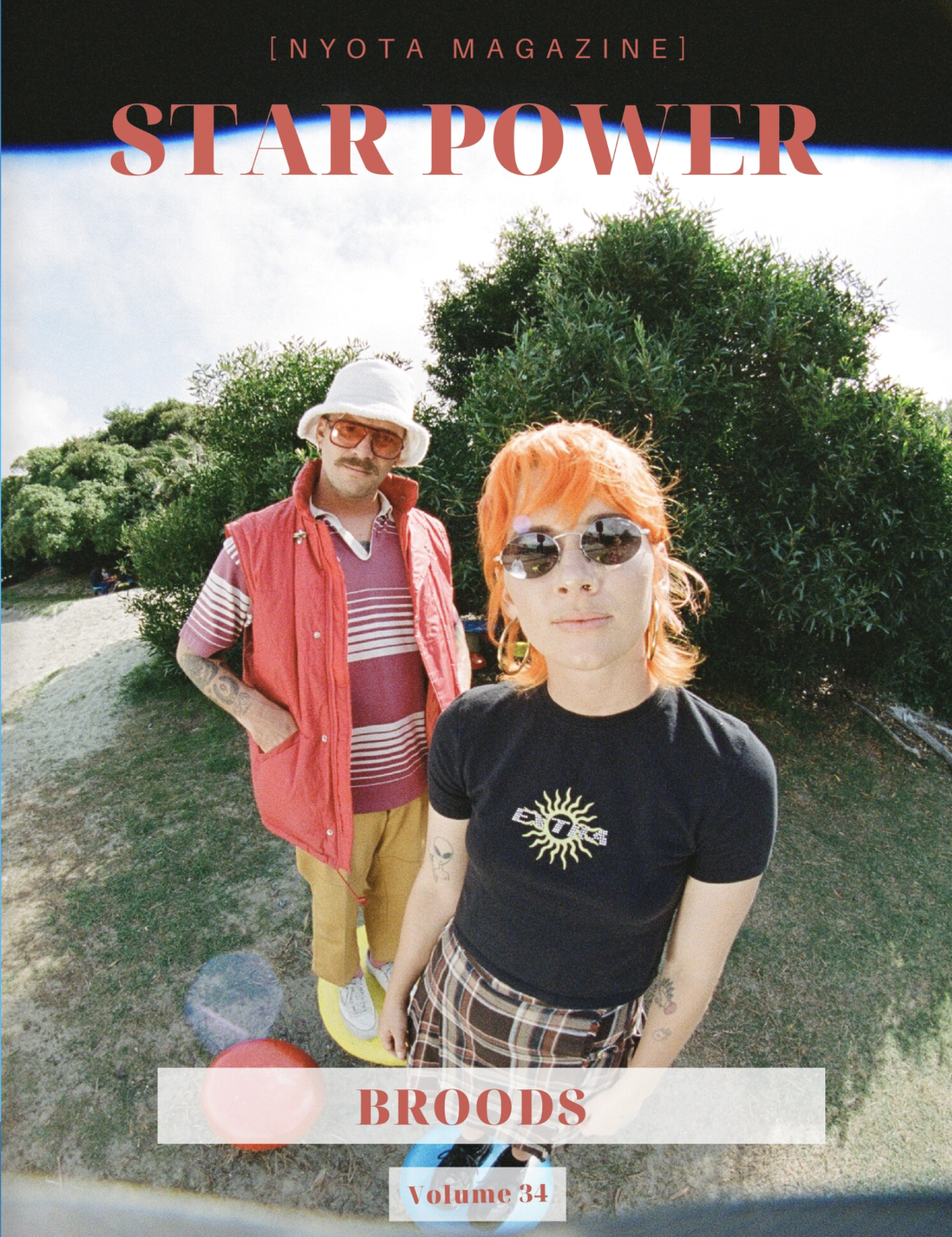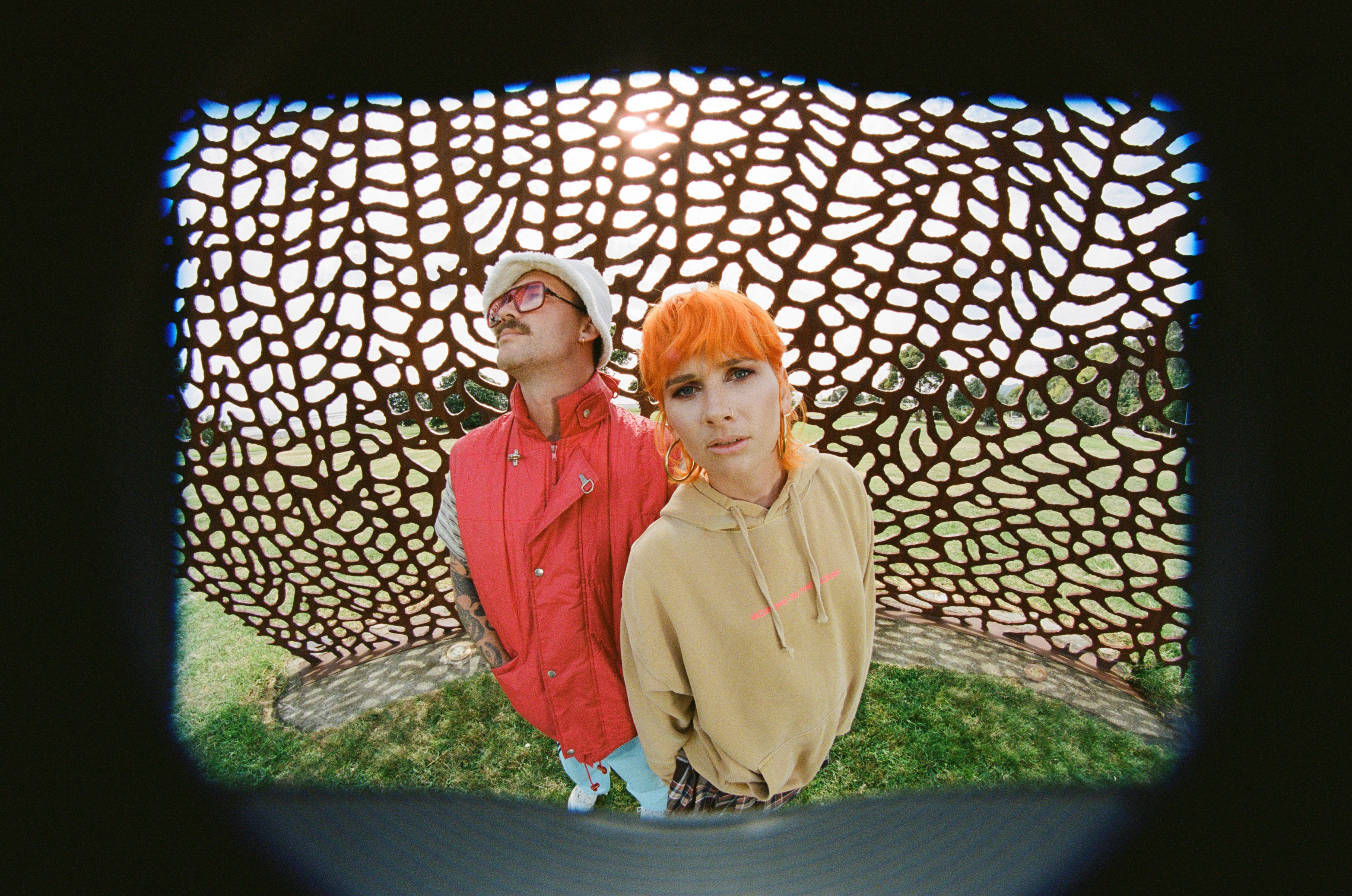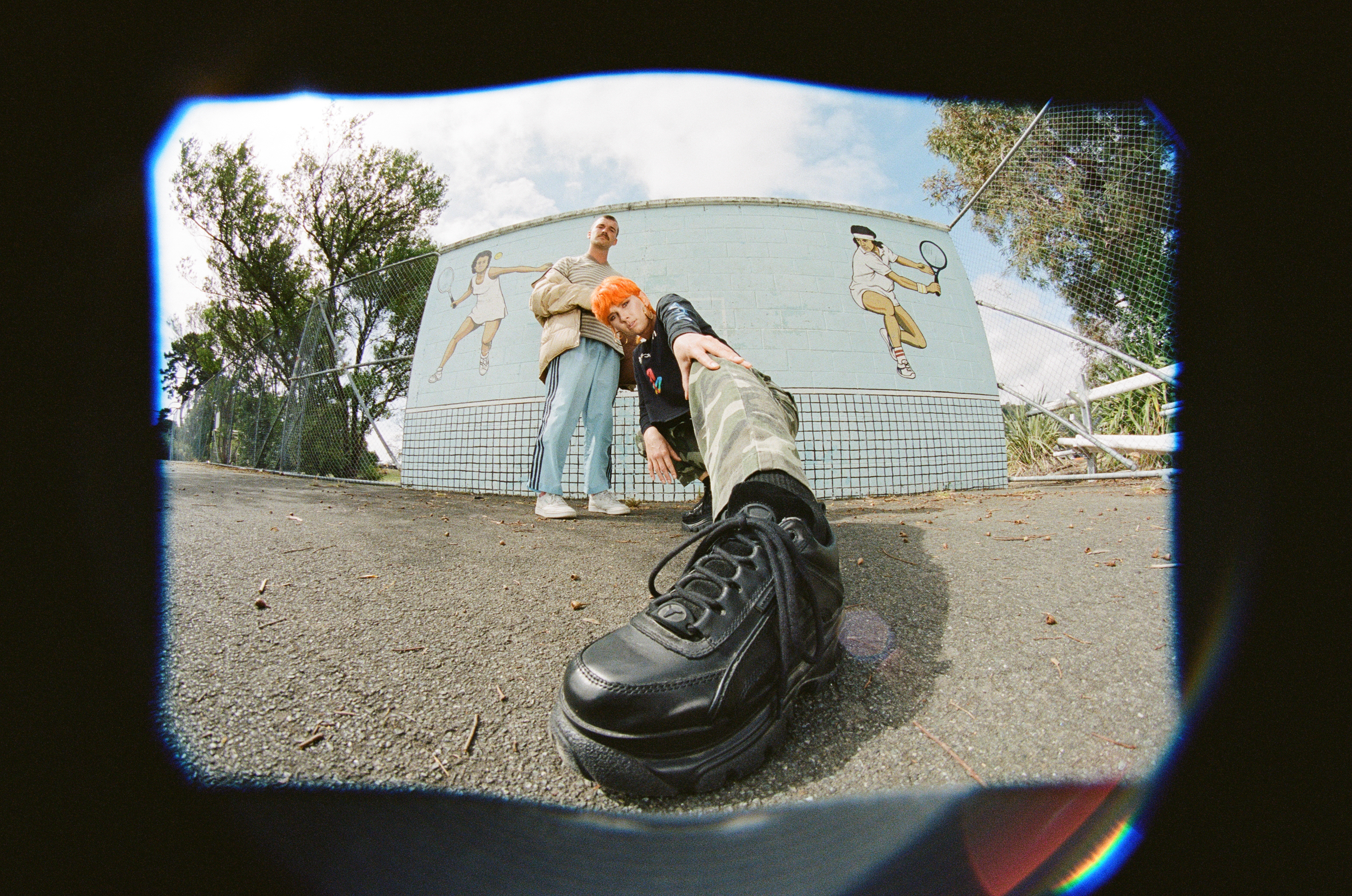We’re going into the NYOTA archives to find some of our favorite interviews that weren’t originally shared on the site.
“If you play music, you’re a musician. If you write, you’re a writer. We are all born little artists in some shape or form. Just keep connected to that and have patience with yourself.”
BROODS

Georgia and Caleb Nott made their breakthrough as BROODS in 2014 with the release of their hit single “Bridges” and debut chart-topping album Evergreen. Now, they have released their fourth album, Space Island, an introspective work that explores grief, loss, and heartbreak. BROODS spoke with NYOTA about their collaborative process, escapism, and creating relatable music.
You grew up in a musical family. When did music go from a passion your family shared to a career the both of you wanted to pursue?
Music was always it for us. We have extremely supportive parents who helped us work hard for it, but also encouraged us to stay just delusional enough to keep believing it was possible. When we left high school, it became a lot more real, though. We signed with our first manager and started writing the first EP with Joel Little. It happened quite naturally because it was all we did or thought about for so long.
Take us back to the beginning of BROODS. How did you two land on the name, and do you still remember the first song you created that made becoming a musical duo seem real?
We had a song we knew we wanted to release, but we didn’t have a name. Coming up with band names is a fun game, but when it comes to committing to one, we were quite avoidant. So when we had “Bridges” up our sleeves, we just had to jump in, and our manager suggested we call ourselves Broods. I don’t think either of us was prepared for what would happen next and how long we would end up identifying as Broods. “Bridges” began to rack up plays on Soundcloud, and a couple of months later, we were signing a record deal in LA.

Who are some of the musicians that inspired you or influenced your sound in those early days?
I was listening to a lot of Laura Mvula, Frank Ocean, and Lana Del Rey. Caleb was listening to a lot of British indie rock bands like Bombay Bicycle Club and Two Door Cinema Club. We’ve always had quite different tastes in music, and it has meant we’ve brought very different influences to the studio every time.
Now you’re releasing your fourth album, Space Island. Has your collaborative process changed in any way throughout the years?
I think we’ve become a lot more involved in the process. Now that we’ve had a bit more experience in what is involved in the broader creative process, we’re able to take the reins a little more. We also have a much bigger musical and overall creative community around us now. We’ve been mostly just working with our friends throughout the whole process, which has been really fun. I think it also cultivates a safe place to be extra honest and vulnerable.

Did the pandemic play a large part in the escapism aspect of Space Island?
We’d actually written most of the album before the pandemic hit. Only “Days Are Passing” and “I Keep” are products of the pandemic. It’s kinda funny that the themes of Space Island have grown and evolved to mean so much more through the pandemic. I think the pandemic definitely influenced the visual aspects of it, though. We were watching a lot of vintage sci-fi at the time, and it felt like an apt metaphor for grief. Escapism being a big part of the grieving process, we could see the world experiencing it, and it felt more important than ever to make the world of Space Island.
Walk us through the creative process behind the music videos for “Piece of My Mind,” “Heartbreak,” and “Like A Woman.” Did the two of you come up with the concepts and walk Director Sam Kristofski through your ideas, or did Sam have a certain vision of how to tie things together visually after hearing the songs?
We had a very big and different vision for the Space Island film. We knew we wanted to build a story that carried through every video but it evolved a lot as soon as we got Sam involved. He has an incredible gift of making amazing and beautiful things with whatever resources he has, and in the middle of a pandemic, we had to be clever with our limitations. We ended up making the most of it by shooting at these insane natural landmarks on the South Island of Aotearoa. The places we were going would usually have been swarming with tourists, and the closed borders left the environment eerily empty. That was perfect for Space Island. We basically just drove around for two weeks with a camera, a bunch of film, and a plastic coffin, and found Space Island within our lonely little country. It was a really special experience.
Is there a certain song on Space Island that you think truly embodies the energy and essence of what the album is all about?
Not really, to be honest. With an album all about loss and grief, there are a lot of different emotions to cover. The record has a pretty eclectic selection of songs because the experience of heartache is an ever-changing landscape. This is an album to be listened to in its entirety.

One thing that’s clear from Evergreen to now is that your music continues to be universally relatable. In “Mother & Father,” you talk about losing that feeling of security after leaving home, and in “Piece of My Mind,” you talk about how it’s futile to run away from your problems. When working on songs, are you thinking about relatability, or do you think writing lyrics based on your own lives helps to bring that authenticity to your work?
Music has always been how I process my own life, but it’s definitely also my way of reaching out to people. Of feeling like I’m contributing to the world. I have noticed as I’ve written more and grown up a bit, that when I’m really writing for my own comfort and sanity, that’s when I connect most with others. I know that what I feel is not specific to me. There are billions of people in the world, and it’s easy to forget that. It’s easy to feel alone and like your worries and struggles are a personal attack on your life. That’s why I think music is so important. It gives us all a place to meet and feel things together and remember we’re a part of something bigger.
Do you see each album as a time capsule that captures the ups and downs of particular periods of your lives?
Oh definitely. I think I’ve learnt so much from those songs years later, too. They’ve triggered memories and feelings and remind me how much we’ve both changed and learnt. It’s like looking through a giant photo album, but with your ears.
What advice do you have for aspiring musicians?
If you play music, you’re a musician. If you write, you’re a writer. We are all born little artists in some shape or form. Just keep connected to that and have patience with yourself. And know that doing it for the sake of doing it is the only thing that makes it sustainable. The reward is in the act of creating. Everything else after that is a bonus.
This story first ran in Star Power Volume 34. Read more from the issue here.



